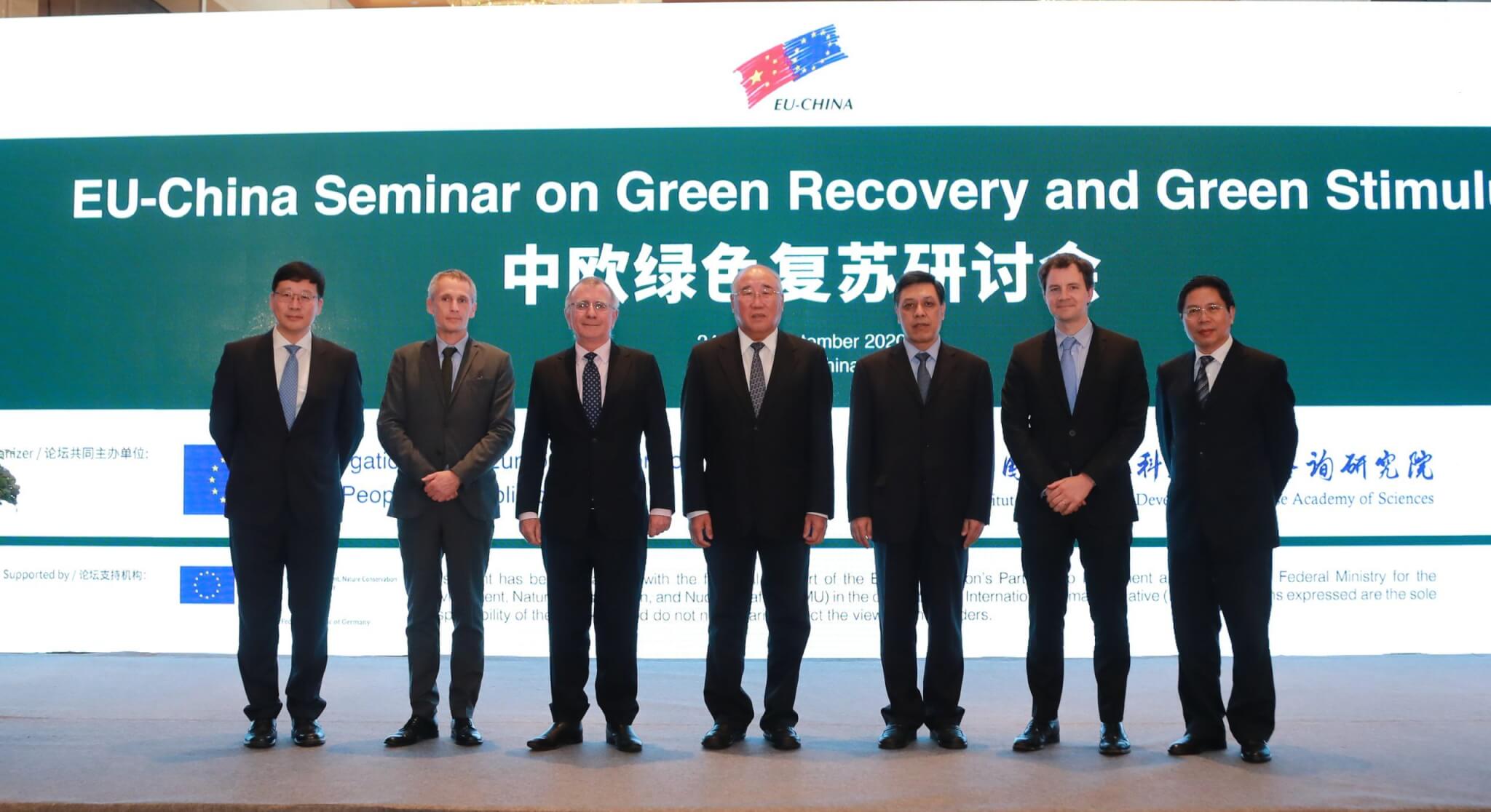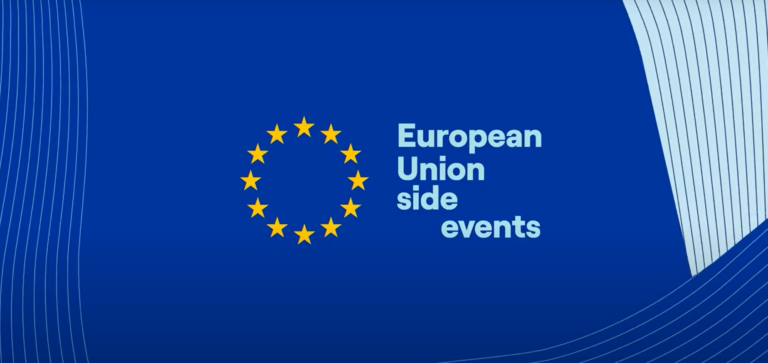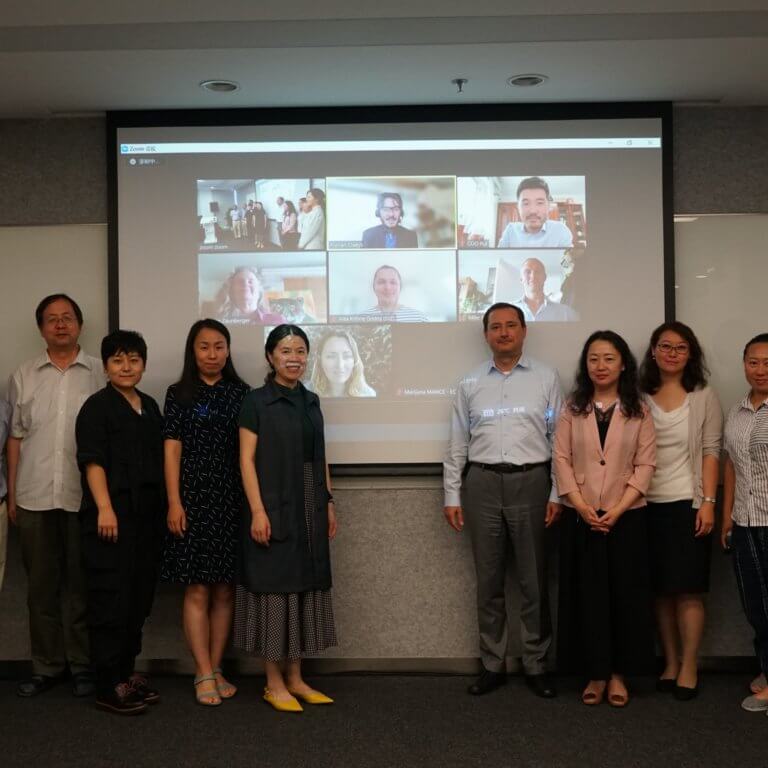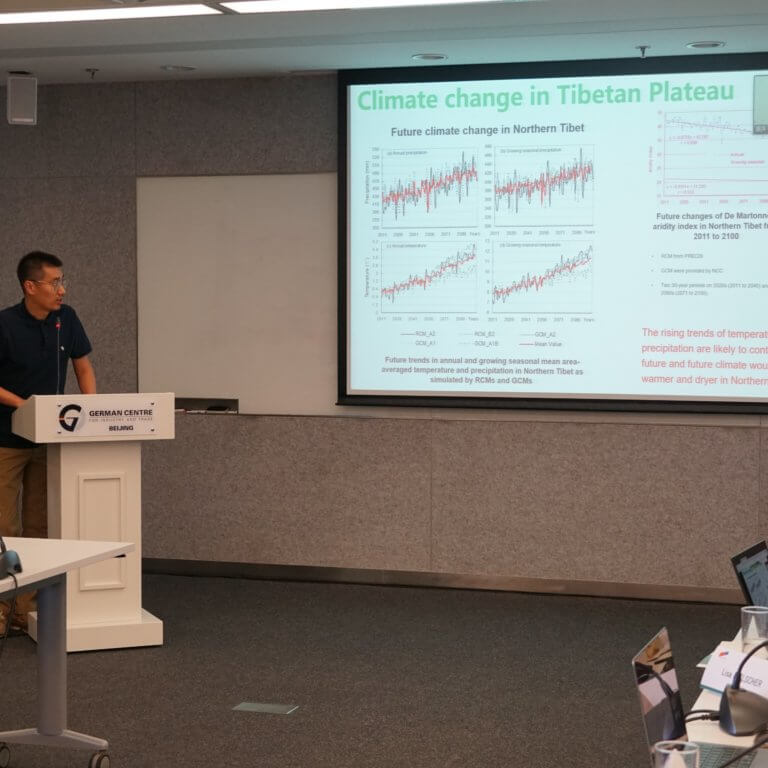On 24th and 25th of September, the Delegation of the EU to the People’s Republic of China (EUD) and the Institutes of Science and Development, Chinese Academy of Sciences (CASISD) co-hosted the “EU-China Seminar on Green Recovery and Green Stimulus” as a hybrid event both in Beijing and online. On site, Chinese ministries including Ministry of Ecology and Environment (MEE), National Development and Reform Commission (NDRC). Ministry of Transportation (MoT), Ministry of Industry and Information Technology (MITT), National Energy Administration (NEA) and embassies from member states participated and presentd in the seminar. The event took place in the context of the Strategic Partnership for the Implementation of the Paris Agreement (SPIPA), a project implemented by the GIZ, aiming at promoting exchange and collaboration among key decision-makers from EU and G20 non-EU economies to progress towards the Paris Agreement.

Photo Credit: GIZ
Just two days prior to the seminar, Chinese President Xi Jinping made a historical announcement to the United Nations that China aims to have carbon emissions peak before 2030 and achieve carbon neutrality by 2060. Against this backdrop, the participants in the seminar discussed a wide range of issues that drive efforts to combat climate change, including energy, finance, transport, biodiversity, and the movement towards building a circular economy. A special attention was put onto the EU-China cooperation. Almost every seminar participant expressed that together both can accelerate their green recoveries and commitments to zero emissions.

Photo Credit: GIZ
The Opening remarks during the first day were delivered by H.E. Nicolas Chapuis, EU Ambassador to China and Mrs. Svenja Schulze, German Federal Minister for the Environment, Nature Conservation and Nuclear Safety (BMU) via video message as well as Mr. PAN Jiaofeng, President of the Institutes of Science and Development of Chinese Academy of Sciences. During his opening remarks on the first day Mr. XIE Zhenhua, Special Advisor on Climate Change Affairs, spoke about tackling climate change within the context of the global COVID-19 pandemic and how, through national and regional stimulus efforts, it presented opportunities for a green recovery. For the second day opening remarks were delivered by Mr. Li Gao, Director General, Department of Climate Change of Ministry of Ecology and Environment (MEE) as well as Artur Runge-Metzger, Director for Climate Strategy, Governance and Emissions from non-trading sectors, Directorate General for Climate Action of the European Commission, reminded the participants that, Europe only makes up 8 percent of total global carbon emissions, so its remarkable progress and goals will not be enough to bring the world in line with the commitments set out in the Paris Climate Agreement.

Mrs. Svenja Schulze, German Federal Minister for the Environment, Nature Conservation and Nuclear Safety (BMU) via video message – Photo Credit: GIZ
The seminar’s overarching topic were the Green Recovery Plans in both geographic regions, especially in light of the Covid-19 crisis. While the Covid-19 pandemic poses a global threat, it may also catalyze climate protection efforts by closely integrating economic recovery plans with green development. Speakers from the European Commission introduced EU Green Deal as well as the EU Recovery Plan. EU Member State representatives described their successful experience of green transition in several sectors. Chinese speakers shared their views and experiences on the same topics, reflecting the latest trends in China.
During those two days, the participants discussed a wide range of issues in nine thematic sessions, that drive efforts to combat climate change. While the primary focus on the first day was on describing current recovery policy efforts and exchanging practical experiences concerning local challenges, responses and initiatives, the second day was devoted to specific issues, such as the transition towards clean mobility, clean industry, and circular economy as well as renewable energy and increased energy efficiency, among others.
Dr. Wang Yi, Member of the 13th National People’s Congress (NPC), Vice President of the Institutes of Science and Development, Chinese Academy of Sciences (CASISD) and Norbert Gorissen, Deputy Director-General, German Federal Ministry for the Environment, Nature Conservation, and Nuclear Safety (BMU), provided concluding remarks, emphasizing the relevance of future Chinese-EU-cooperation on climate change. Given the aligned policy goals regarding carbon reduction and commitment to green recovery initiatives in the wake of the pandemic, there is a lot of room for the EU and China to cooperate and share experiences.

Norbert Gorissen, Deputy Director-General, German Federal Ministry for the Environment, Nature Conservation, and Nuclear Safety (BMU) moderated the second day of the event – Photo Credit: GIZ



